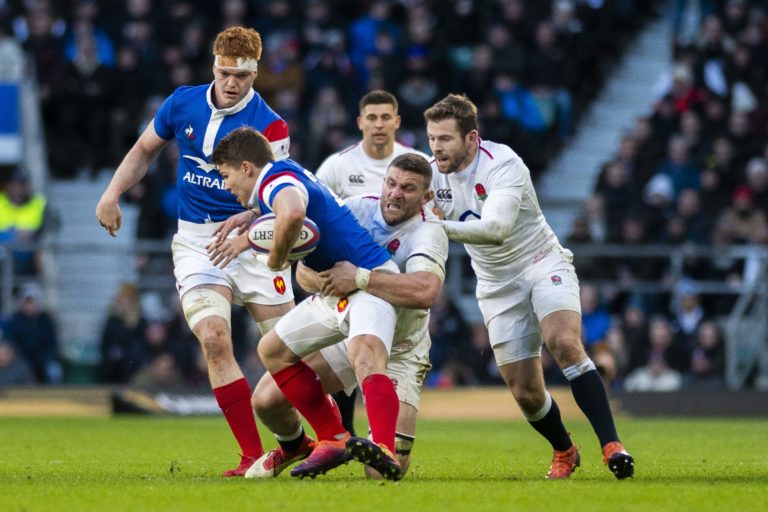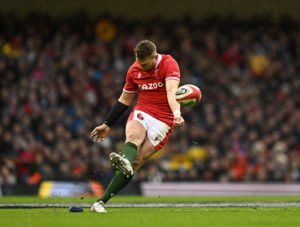- Wales -26 on the h'cap (Evns, Bet 365, Betfair, Paddy Power)
- France 1-10 points winning margin (5/2, Paddy Power)
- Ireland to beat Scotland (10/11, SBK)
Italy v Wales, Saturday 13 March, Stade Olimpico, kick-off 14:15pm (UK time).
Having lost 30 straight matches in the Six Nations and not won at home since 2013, it may sound strange to say it but it has not been all bad for Italy this year.
Franco Smith has yet to taste victory in 11 matches as head coach of the Azzurri but there have been a few positives, notably the half-back pairing of Stephen Varney and Paolo Garbisi, which has been restored for this match.
Unfortunately, it’s been a case of one step forward, two steps back.
If the Italian Federation doesn’t get rid of him, his players and their coach-killing antics will be directly responsible for Smith’s demise. For every brief moment where things are looking good for Italy, one of the team comes up with a poor decision or makes a silly error, to hand the initiative back to the opposition.
In Wales, they come up against a side this Saturday that will ruthlessly take advantage of any slip-ups. The back-three of Josh Adams and Louis Rees-Zammitt and Liam Williams oozes tries and with Italy tending to fall off tackles and switching off when the ball gets to the wide channels, it would be amazing if at least one if not all of the triumvirate cross the whitewash.
A full-back has scored in every game against Italy in this year’s Championship and Williams is 5/4 (sky bet) to join Brice Dulin, Elliot Daly and Hugo Keenan on the list of names.
With the defence looking pretty watertight now that Gethin Jenkins has come on board, we see no reason why the Triple Crown winners can’t brush Italy aside as easily as Ireland did in winning 48-10 in Rome in round three and overcome the 26-point handicap against them.
Italy: 15 Jacopo Trulla, 14 Mattia Bellini, 13 Juan Ignacio Brex, 12 Carlo Canna, 11 Montanna Ioane, 10 Paolo Garbisi, 9 Stephen Varney, 1 Danilo Fischetti, 2 Luca Bigi (c), 3 Giosuè Zilocchi, 4 Niccolò Cannone, 5 David Sisi, 6 Sebastian Negri, 7 Johan Meyer, 8 Michele Lamaro.
Replacements: 16 Oliviero Fabiani, 17 Andrea Lovotti, 18 Marco Riccioni, 19 Marco Lazzaroni, 20 Maxime Mbanda, 21 Marcello Violi, 22 Federico Mori, 23 Edoardo Padovani.
Wales: Liam Williams, Louis Rees-Zammit, George North, Jonathan Davies, Josh Adams, Dan Biggar, Gareth Davies, Wyn Jones, Ken Owens, Tomas Francis, Cory Hill, Alun Wyn Jones, Josh Navidi, Josh Tipuric, Taulupe Faletau.
Replacements: Elliot Dee, Rhys Carre, Leon Brown, Jake Ball, Aaron Wainwright, Lloyd Williams, Callum Sheedy, Willis Halaholo.
England v France, Saturday 13 March, Twickenham, kick-off 16:45pm (UK time)
Referee Andrew Brace finds himself thrown back into the cauldron barely four months since his performance in the final of the Autumn Nations Cup attracted strong criticism on the other side of the Channel and brought out the worst in social media.
Whilst we’re not suggesting that Brace will bow down to the trolls and let them affect his judgement, it’ll be interesting to see which way the 50:50 calls go on Saturday.
France did not have the rub of the green in losing 22-19 to England in sudden death extra-time back in December, conceding 17 penalties and having a couple of forward passes overlooked in the build up to England’s crucial late try.
Either way, France are favourites in our book. History may say otherwise – Les Bleus haven’t won at Twickenham in the Six Nations since 2005 – but they are the better-equipped of the two teams to move on to bigger and better things.
France were the only team to beat England in 2020, at the start of the Six Nations, and have gone from strength to strength since then, blooding young players along the way, while England have been stuck in a dark alley, with Eddie Jones in denial and still believing that his way is the only way.
The selection of Max Malins in place of the out-of-sorts Elliot Daly is a concession that all is not right with England’s attacking game but France are still going to be far more fluent with ball in hand as long as England persist with Owen Farrell at 12.
England have won over 80% of games when their captain has played at inside centre but the amount of balls he has dropped this year is embarrassing for a player of his standard.
Fit-again Virime Vakatawa will attempt to steamroller over England’s midfield and Farrell will have to be mindful of the height of his tackles when the two collide, otherwise Brace could be reaching for his pocket.
That said, whenever France do beat England, it is only ever by tight margins so the 5/2 for a win by 1-10 points might be more attractive than going for an outright odds-on win.
England: 15. Max Malins, 14. Anthony Watson, 13. Henry Slade, 12. Owen Farrell, 11. Jonny May, 10. George Ford, 9. Ben Youngs, 1. Mako Vunipola, 2. Luke Cowan-Dickie, 3. Kyle Sinckler, 4. Maro Itoje, 5. Charlie Ewels, 6. Mark Wilson, 7. Tom Curry, 8. Billy Vunipola.
Replacements: 16. Jamie George, 17. Ellis Genge, 18. Will Stuart, 19. Jonny Hill, 20. Ben Earl, 21. Dan Robson, 22. Ollie Lawrence, 23. Elliot Daly.
France: 15. Brice Dulin, 14. Teddy Thomas, 13. Virimi Vakatawa, 12. Gaël Fickou, 11. Damian Penaud, 10. Matthieu Jalibert, 9. Antoine Dupont, 1. Cyril Baille, 2. Julien Marchand, 3. Mohamed Haouas, 4. Romain Taofifenua, 5. Paul Willemse, 6. Dylan Cretin, 7. Charles Ollivon, 8. Grégory Alldritt.
Replacements: 16. Camille Chat, 17. Jean-Baptiste Gros, 18. Dorian Aldegheri, 19. Cyril Cazeaux, 20. Cameron Woki, 21. Anthony Jelonch, 22. Baptiste Serin, 23. Romain Ntamack.
Scotland v Ireland, Sunday 14 March, Murrayfield, kick-off 15:00pm.
Two teams who like to keep hold of the ball and have a good set-piece come together for what should be a close encounter but one the Irish are fancied to win.
Had the fixture fallen in the first two rounds, Scotland might have been favourites, but Ireland have put defeats to Wales and France behind them and go into the match buoyed by a good performance in Rome.
Ireland’s stuttering attack finally clicked into gear in a 48-7 win, where the movement of the backs, and the ball, was too much for the hapless Italians.
Scotland, of course, are a different proposition but if they can keep Finn Russell and Stuart Hogg quiet, their fine record against their Celtic rivals should continue.
Ireland are on a five-game winning run against the Scots, scoring on average 25 points per game and only 10 conceded. Whilst we can’t see this being more than a two-score game, Ireland by 6-10 points is not unrealistic.
And with Scotland having failed to score a second-half try in each of their last seven home games against Ireland, the half-time handicap is another market that interests us.






